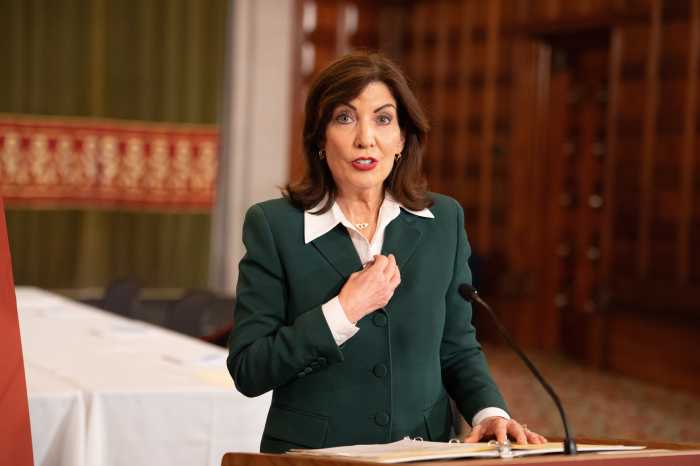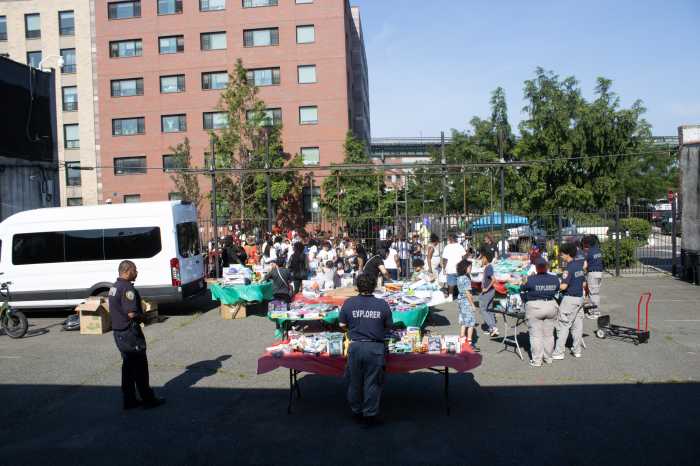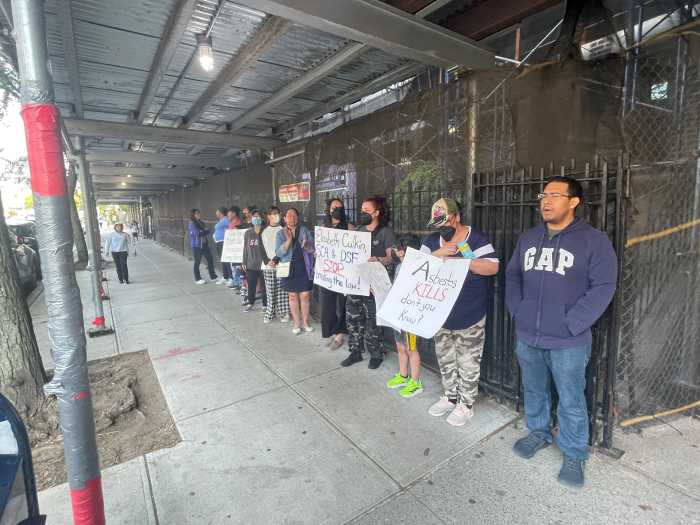The public’s fears of the swift commercialization of Governors Island were on full display Wednesday despite support from city officials for a rezoning plan.
The majority of about 100 attendees at a public hearing Wednesday night were opposed or had concerns about the rezoning efforts on the southern part of the island. Mayor Bill de Blasio and Manhattan Borough President Gale Brewer have voiced support for the proposed plan.
“Governors Island should be maintained as a historic jewel in the harbor, and it needs to be a respite from the rest of Manhattan,” said Kevin Fitzpatrick, author of the Governors Island Explorer’s Guide.
“Is it going to be saved for New Yorkers? Or is it going to be turned into another Hudson Yards or something like that. We don’t want to see that.”
The proposed rezoning would open 33 acres of the southern part of the island to commercial, academic and cultural development, according to the mayor’s office. There is a university use option that would focus on academics and student housing and a mixed use option with a focus on more office space. Short-term stays in hotels or dorms would be permitted under the plan.
The Trust of Governors Island said commercial development of the island would provide a revenue stream to support and sustain it.
“The vision for Governors Island is looking to reactivate this place to make it a 24/7 environment, 365 (days) open to more New Yorkers to continue to expand the resource,” said Michael Samuelian, president of the Trust of Governors Island.
“We’re also looking to ensure that interesting views are preserved.”
New developments are expected to be low- and mid-rise buildings that do not obstruct the view of the Statue of Liberty or Manhattan skyline, said the trust.
Many activists like Fitzpatrick would rather the trust preserve and use existing facilities on the island to raise funds. Artists on the island fear commercialization will lead to their demise.
“The culture of the island has been developed as this quirky community arts kind of culture and when we see the commercialization, we get really nervous,” said David Koren, executive producer of the Figment project, which has produced art since the island was opened to the public 12 years ago.
“The island is a special and unique place and it may not be unique any more. More and more of our places seem to be the same.”
Governors Island welcomed almost one million visitors in the past year.
Environmental consulting firm AKRF has been tasked with conducting an environmental impact review. The expected completion would be in 2030 if the plan is approved.



































